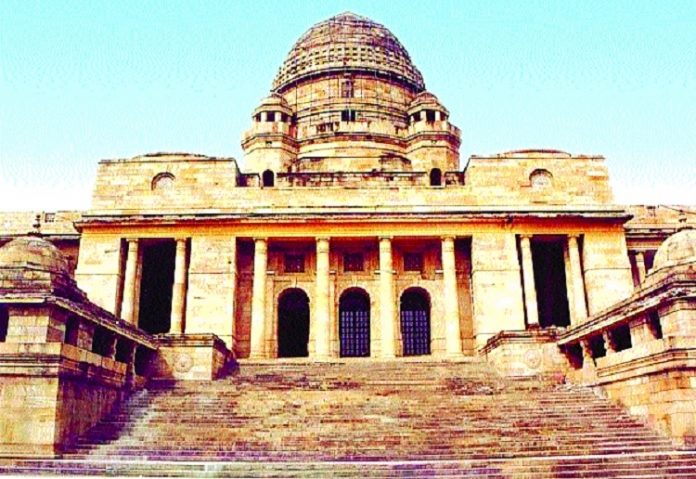The Bombay High Court has said that mass quarantining is permissible in a situation like the outbreak of a contagious epidemic where the Inconvenience of some should be bypassed for a larger interest or cause of the society,.
Justice A S Kilor of the Nagpur bench of the HC was hearing a petition filed by Mohammad Nishat who claimed that the Nagpur civic authorities had illegally detained 1,408 people from Satranjipura and Mominpura areas on the ground that they were high-risk contacts of COVID-19 patients. The petitioner contended that authorities randomly picked 1,408 people and, thus, violated prescribed protocols and guidelines issued by the Union government and Indian Council of Medical Research (ICMR).
It was argued that only persons found to be coronavirus positive or their high-risk contacts can be detained and quarantined for 14 days and that the 1,408 people do not fall under these categories and, hence, detaining them amounts to infringement of their fundamental rights. The civic authorities, however, refuted the claims and said only high-risk contact persons were sent to quarantine facilities.
The court in its order noted that it was of the prima facie opinion that the contention raised in the petition is without any substance.
“Inconvenience of some should be bypassed for a larger interest or cause of the society,” the court said.
“Time is of the essence in a quarantine situation, perhaps the best way in the present unprecedented situation to balance conflicting interests between individual’s rights and public health is to allow for immediate quarantine for preventing spread of contagious and infectious COVID-19,” it said.
“I am of the prime facie view that if the situation so demands and the extreme outbreak of a contagious disease is established by the authorities, then mass quarantining is permissible in the interest of larger society,” the court said.
The court noted that from May 5, when the petition was heard, and till date, the number of COVID-19 patients in Nagpur had reached 298 from 156. Those persons who have tested positive are mostly those who have been quarantined.
Of these, 99 COVID-19 positive patients are from the Satranjipura area, whereas 139 are from Mominpura area.
It is pertinent to note that the population of these two hotspots is more than three lakh, the court said.
“In such contingency, when an extreme outbreak of especially a contagious disease like coronavirus is being posed as a threat to public, safety and security of the general public is of paramount importance,” Justice Kilor said.
The bench noted that if the behaviour or movement of any individual poses a significant risk or harm to themselves or their community, then, to control the threat, if the authorities act in larger interest, then people cannot claim to enjoy the right to movement free from any interference.
“In such a situation, rights of citizens would always be subject to reasonable restrictions,” the court said.
The court further held that if the authorities had not taken the measures of institutional quarantine of high-risk contacts from Satranjipura and Mominpura areas of Nagpur, then the number of COVID-19 cases would have climbed further as these two areas are highly congested and densely populated.
“Even though quarantine is a curtailment of civil liberties, measures taken to quarantine persons from these two areas cannot be termed as to negate right to life, but in fact it will only protect right to life guaranteed under Article 21 of the Constitution for achieving a larger public interest,” the court said.
The bench has, however, ordered for an expert committee to be set up to give an opinion on the petitioner’s contention that quarantine facilities at MLA Hostel and the Visvesvaraya National Institute of Technology (VNIT) hostel were not as per guidelines issued by the Union government.
The court said authorities shall ensure the persons quarantined shall have enough supply of basic needs and proper hygiene and be updated about their health regularly.
-India Legal Bureau


